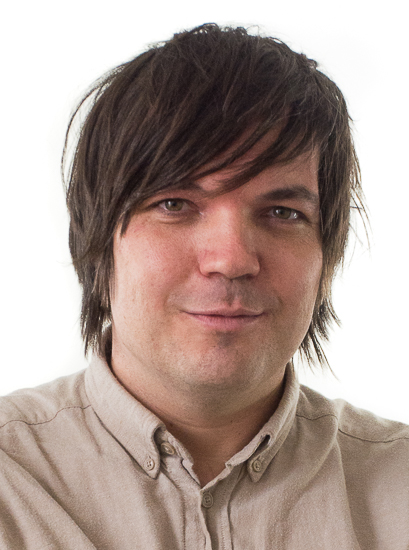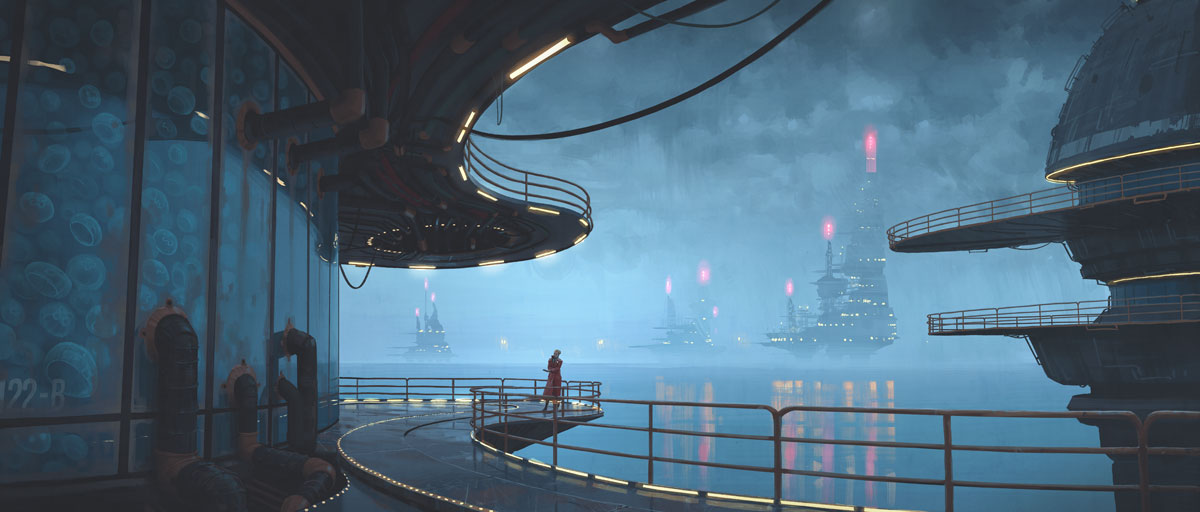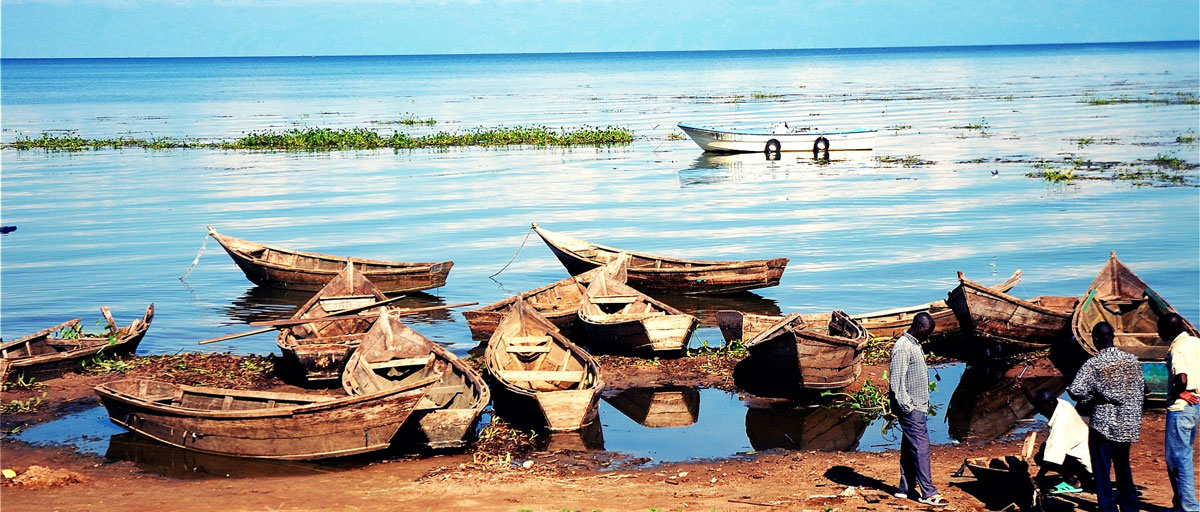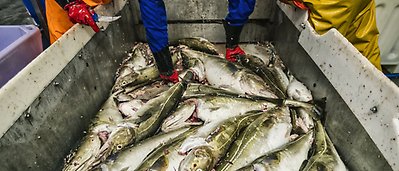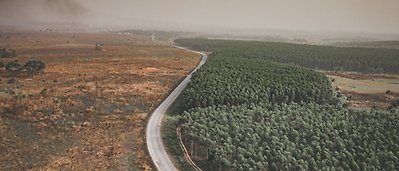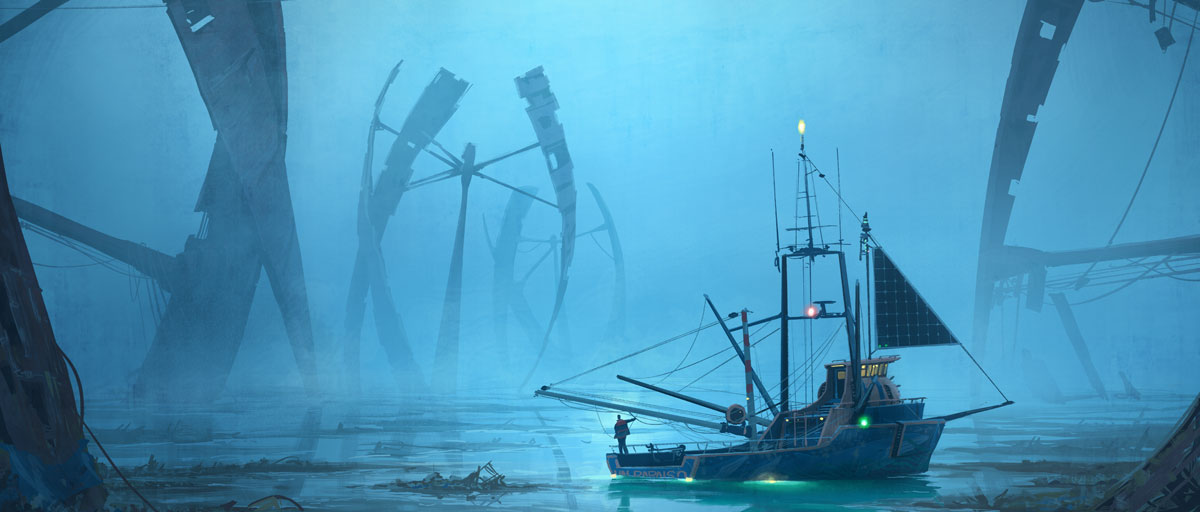
Researchers identify six characteristics necessary to make scenario processes more inclusive and able to address complex and context-specific problems. They also explore the key role of imagination in these processes. Photo: S. Stålenhag/Stockholm Resilience Centre
Bildtext får vara max två rader text. Hela texten ska högerjusteras om den bara ska innehålla fotobyline! Photo: B. Christensen/Azote
SCENARIO DEVELOPMENT
Imagine the future
Six characteristics necessary to make scenario processes more inclusive and able to address complex and context-specific problems
- Models currently used in scenario development do not fully capture the complexity of the challenges related to biodiversity, ecosystem services and human wellbeing
- It is also necessary with methods that are able to capture the imagination of the participants
- The researchers draw on four cases of imaginative arts-based scenario processes, representing different combinations of the six characteristics
Scenario development is increasingly recognized and used as a method for exploring future change and decision-making processes. In assessments by the Intergovernmental Science-Policy Platform on Biodiversity and Ecosystem Services (IPBES) it has become a valuable tool.
However, an assessment by IPBES has shown that the models currently used in scenario development are unable to fully capture the complexity and context-specific nature of the challenges related to biodiversity, ecosystem services and human wellbeing.
“Scenarios are often developed based on biophysical and economic models, through closed, exclusionary processes. Oftentimes, the voices of those affected real life changes are left out and their voices remain unheard,” centre researcher and lead author, Laura Pereira explains.
There is value in fostering more inclusive and creative participatory processes that acknowledge the importance of understanding multiple value systems and relationships in order to re-imagine a more inclusive and just future.
Laura Pereira, lead author
Inclusive and imaginative
Pereira, together with centre researchers Amanda Jiménez-Aceituno, Andrew Merrie and other colleagues, published a paper in Elementa the Science of the Anthropocene, identifying six characteristics necessary to make scenario processes more inclusive and able to address complex and context-specific problems. They also explore the key role of imagination in these processes.
The six characteristics the authors believe would make IPBES scenario processes more relevant are:
1. adaptability across diverse contexts
2. inclusion of diverse knowledge and value systems
3. legitimate stakeholder engagement that foregrounds the role of power and politics
4. an ability to grapple with uncertainty
5. individual and collective thinking mechanisms
6. relevance to policy making
To imagine it is to belive in it
Making the process relevant however, is, necessary but not sufficient. The authors also argue that drawing on methods that are able to capture the imagination of the participants will generate more transformative outcomes from scenario processes.
“Scientists, practitioners and policy-makers need new ways to engage with the complex global challenges through more participatory and imaginative processes,” says co-author Jiménez-Aceituno.
In order to make change happen, we have to be able to imagine it.
Amanda Jiménez-Aceituno, co-author
The authors draw on four cases of imaginative arts-based scenario processes, representing different combinations of the six characteristics.
The four case study approaches differ in how they match with the six characteristics from IPBES scenario needs, each has limitations and offer different possibilities.
The first case study, Seeds of Good Anthropocenes, uses a novel participatory sce¬nario generation method that starts with existing ‘seeds’ of positive actions taking place in the world right now that if grown and combined, could lead to a more desirable futures.
The second, Museums of the Future Now, is a series of speculative artworks and work¬shops designed to engage people in an exploration of the environmental, social and economic factors that create the complex challenges that we face as a society.
The AKWA project (by the CACTUS artistic group) is a play set in Spain in 2026, ten years after the last drop of water has come out of the tap, exploring how a community might experience life and remember (or not) a world in which water was freely available and publicly owned.
Finally, the Radical Ocean Futures project consists of four short scientifically grounded science fiction narratives of potential ocean futures that are each supported by both visual, musical and a dramatic voiceover interpretation in order to stimulate the imagination through multiple entry points.
No bullet, but a silver lining
The four case studies are not ‘silver bullet solutions’ for IPBES scenario processes but represent tools that together may serve as a good starting-point for reformulating methodological approaches towards incorporating more creative and imaginative processes in biodiversity conservation and ecosystem services research.
“Creative scenario co-development processes that promote and encourage imagination and more empathetic responses should be considered as tools complementary to the suite of methodologies currently used to develop future IPBES scenarios for exploring how societies might be organized in the future to build a more sustainable and desirable Anthropocene,” the authors conclude.
“The arts and insight into the diverse ways that works of art are created offer exciting opportunities and inspiration for exploring new ways to envision the future.”
Pereira, L., Sitas, N., Ravera, F., Jimenez-Aceituno, A. and Merrie, A., 2019. Building capacities for transformative change towards sustainability: Imagination in Intergovernmental Science-Policy Scenario Processes. Elem Sci Anth, 7(1), p.35. DOI: http://doi.org/10.1525/elementa.374
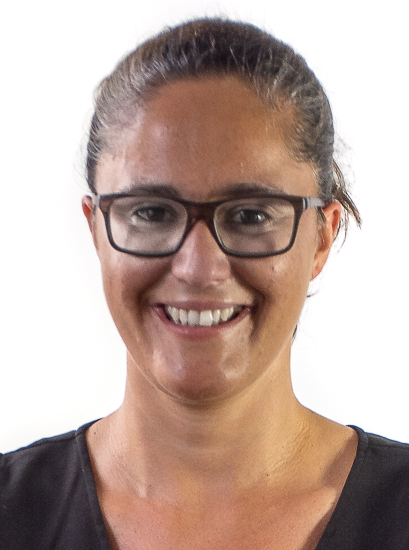
Laura Pereira’s work focuses on sustainability transformations in developing country contexts and she is working on the Seeds of Good Anthropocenes team on a project related to the IPBES Nature Futures framework.

